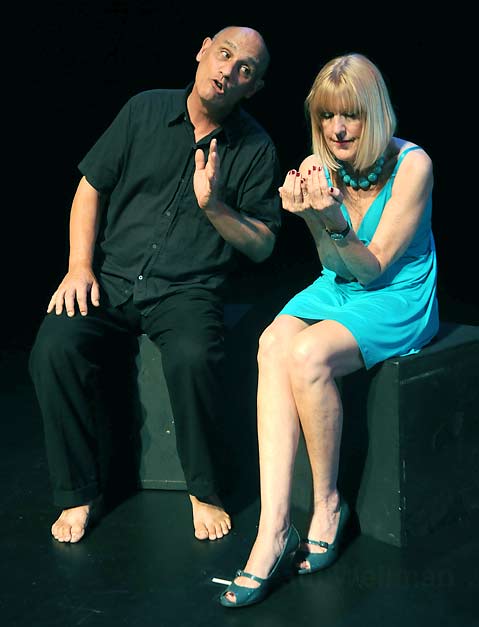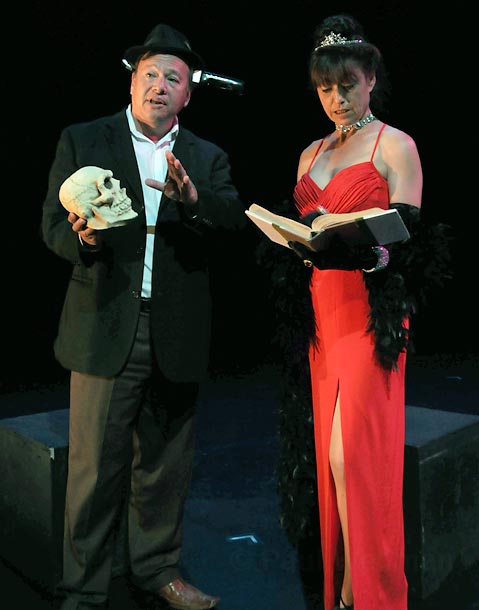Short Plays by David Ives at Center Stage, Friday, June 19
One-Acts Show Playful Side of Language
The anthropologist Bronislaw Malinowski coined a term-the “phatic”-to describe linguistic functions that exist solely to bring people together and to give pleasure, rather than to impart information. In theory, the phatic function ranges all the way from baby’s first lip smacking “mamas” to the rhetorical flourishes of official announcements, or the memorably “sticky” hard consonants embedded in trademarks such as Nike, Kinko, and Google. The work of playwright David Ives offers a tour of the phatic realm, where what you say is rarely as important as how you say it. This program’s seven short works by Ives all in one way or another take us back to the primal pleasure of making sound.

In Universal Language, the idea of language as emotional connection is raised directly. Don (Ed Giron) runs a language school where he teaches an Esperanto-like gibberish called “Unamunda.” When Dawn (Deborah Helm), a shy woman with a stutter, enters and finds she has a knack for this phony tongue, Don reconsiders his scam. Unamunda itself, based as it is on sound-alikes such as “velcro” for “welcome” and faux-amis from related languages like Spanish (e.g., “porky” meaning “because”), is the real star here, operating like a bubbly, pop-culture version of James Joyce’s endlessly inventive portmanteau permutations in Finnegan’s Wake.

In Words, Words, Words, the opening piece of the evening, three chimpanzees-Swift (William York Hyde), Kafka (Deborah Helm), and Milton (Ed Giron), sit at typewriters-observed by an unseen scientist as they participate in an experiment involving the old axiom that, given an infinite amount of time, three chimpanzees pounding randomly on typewriters would eventually compose Hamlet. Although the premise allows for much fun under the heading of physical comedy-chimp walk, anyone?-again it is the resonance of the language that adds depth and complexity. Each chimp offers at least a flash of the genius of his or her namesake writer, all in the context of an absurdity every bit as daunting as Sartre’s dream of a theatrical space with No Exit.
Of the remaining pieces, The Mystery at Twicknam Vicarage packed the most punch, mixing rapid-fire reversals with high camp and sexual single-entendres. Carol Metcalf is hilarious in this one. She makes the simple act of getting out of a chair and crossing the stage into an uproarious affront, and somehow her fellow cast members manage to keep straight faces.



